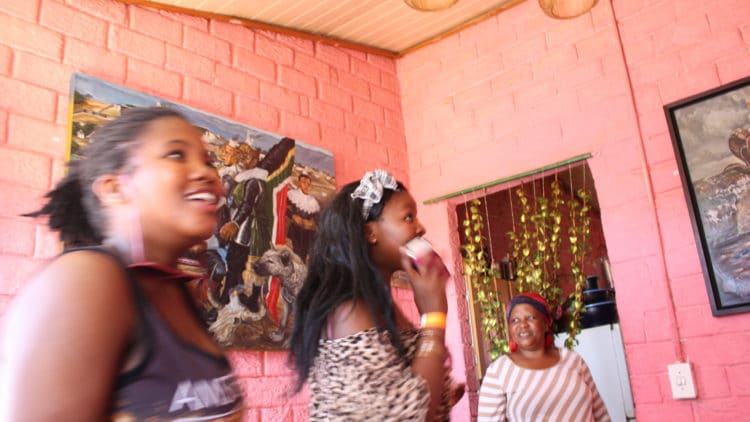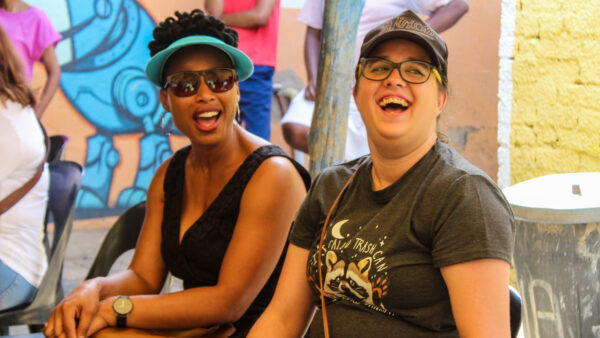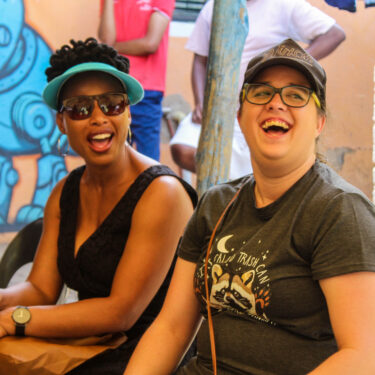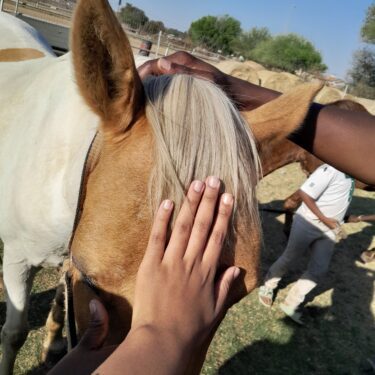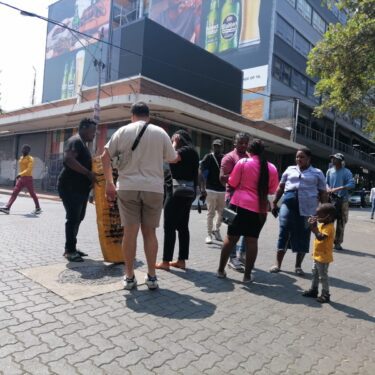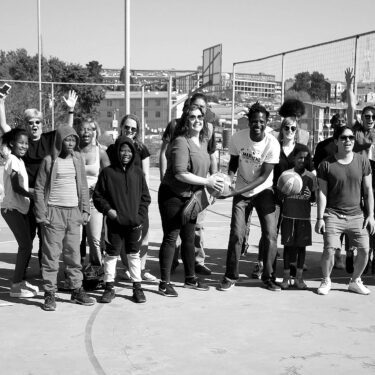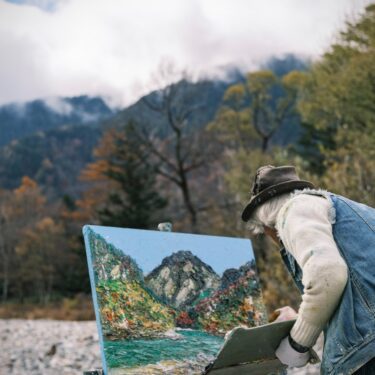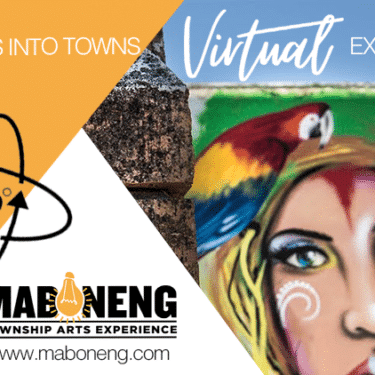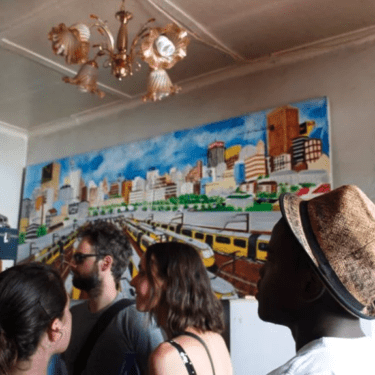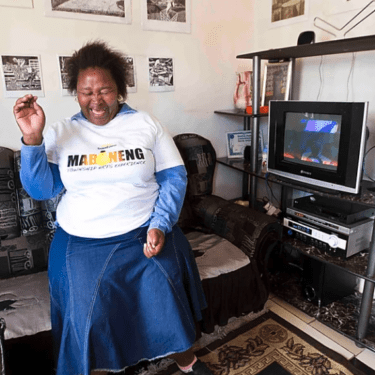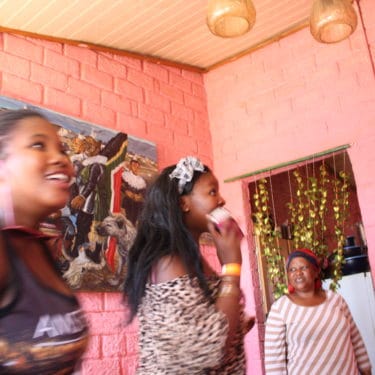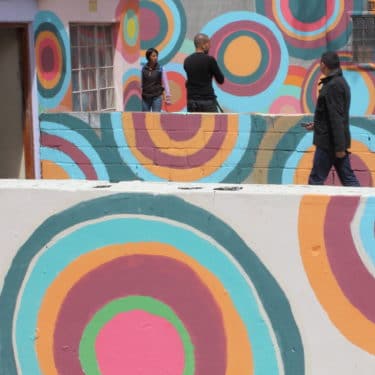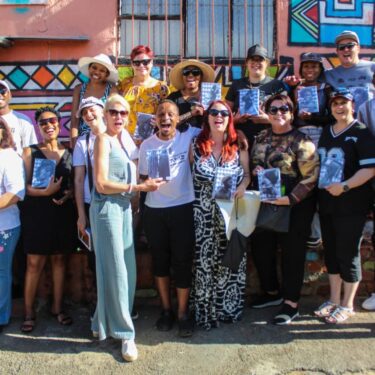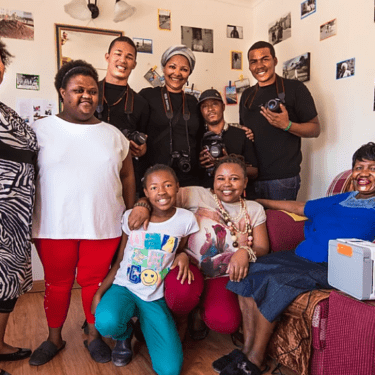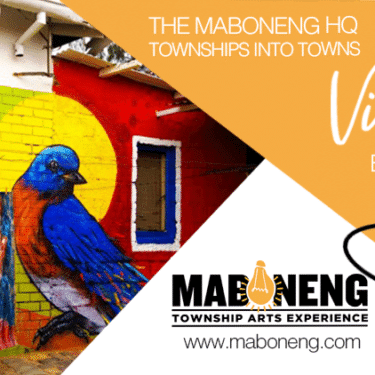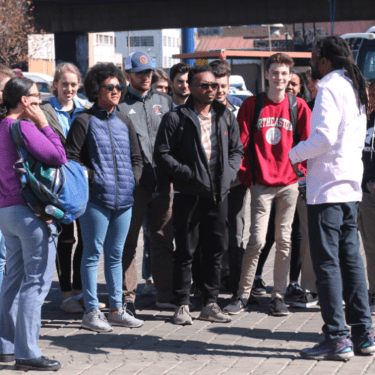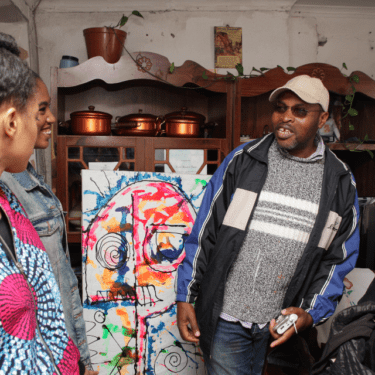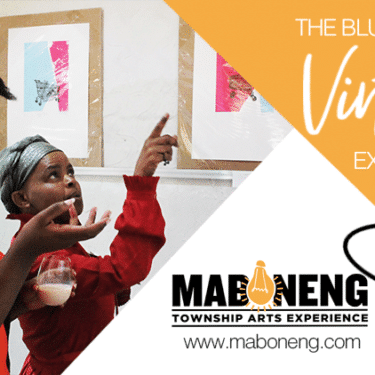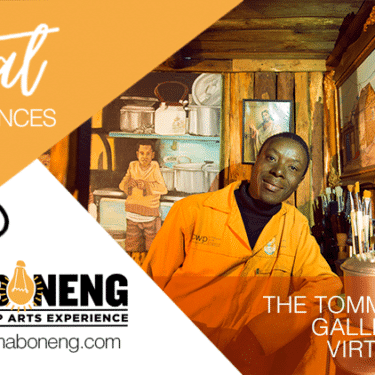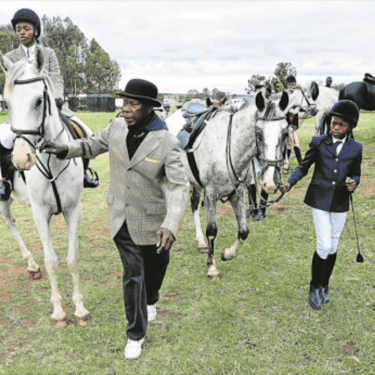The neighbourhood is the future of responsible tourism.
The Township/neighbourhood has seen an increase in tourism looking to take a foothold in its communities. In this piece we attempt to scratch the surface in a series of texts that will help us unearth the mystery and dynamics of tourism in the townships. This is so we can create a small picture in which visitors can attempt to see our world in the best way possible for us as the original community members and for our environment.
The Township Tourism Pondered
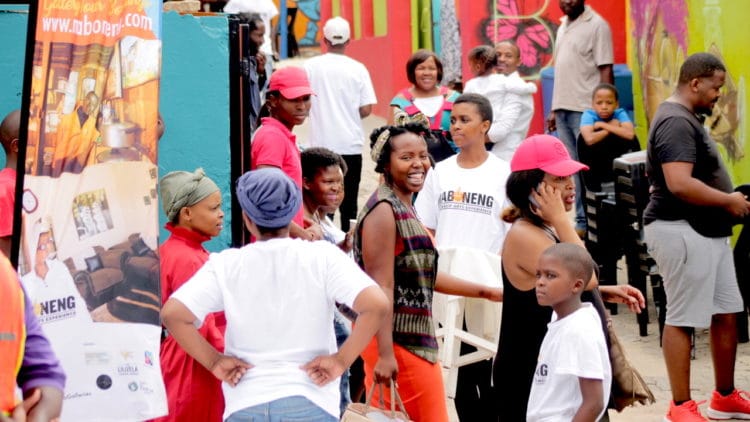
An experience in Alexandra and Langa Township, tour guides leading travellers and guests to gallery homes. Cape Town and Johannesburg
By Siphiwe Ngwenya
Creator of South Africa’s first creative economy of home industries in the township. Ngwenya has 13 years experience in civic engagement and entrepreneurship and 15 years in the professional arts field. He is a painter, illustrator, conceptualist, explorer and self-taught social scientist. When he returned from a science expedition that took him from his home town, Alexandra Township to the Antarctica in January of 2008, not only did he come back with a mobile solar and wind powered workstation for his neighbourhood to see, he proved to the South African community that his career is about more than offering social solutions for a youth in peril. Today, Ngwenya is an ambassador that has been shaped in the fire of people’s pain. His music, art and message have always been reserved for something of much higher significance. As a vanguard of Hip Hop culture and expression, he is the founding member of South Africa’s pop phenomenon, Skwatta Kamp. Keeping to his philosophy of the home being the epicentre of cultural affairs, Ngwenya has founded the Maboneng Township Art Experience, turning hundreds of township into galleries. Ngwenya has completed various leadership and Arts Management courses and speaking engagements with institutions such as Business Arts South Africa, Red Bull Amaphiko Social Entrepreneurship Academy, Common Purpose, Arts & Culture Trust and the Mandela Washington Fellowship Program.
Introduction

An experience in Alexandra and Langa Township, tour guides leading travellers and guests to gallery homes. Cape Town and Johannesburg
Tourism and the arts were, and still are, an academic mystery. They are both mammoth concepts and as a social entrepreneur in townships, I find myself in this hard but exciting space that has led me to view townships in a different manner. Another notable change has been my renewed curiosity concerning the underlying arts and tourism economics, which in townships, are linked to low prices.
The rise of township tourism in Africa – and indeed other third world environments too – has heralded the beginning of the need for a more responsible way of doing things. A more responsible way of traveling and consuming experiences in these exciting places, which by the way could also be good if you have a shoestring budget.
Community Perspective
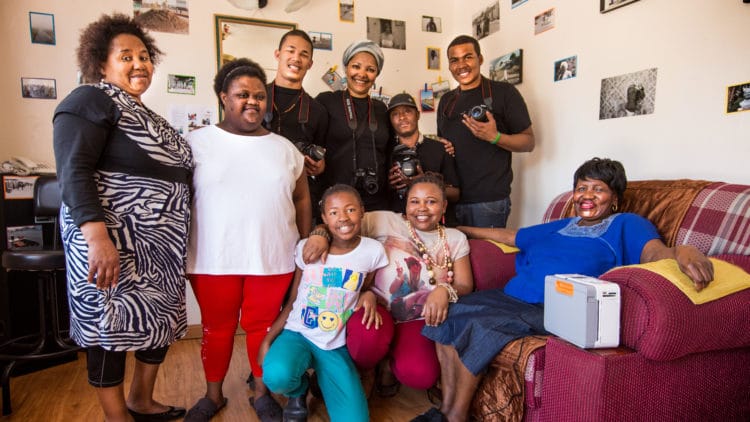
An experience in Alexandra and Langa Township, tour guides leading travellers and guests to gallery homes. Cape Town and Johannesburg
Countries like South Africa are enjoying an influx of tourists and are responding in innovative ways to the need of a more responsible visitor experience. In the South African economy, tourism is a substantial contributor to the Gross Domestic Product (GDP), even bigger than mining. Currently – and historically – the biggest beneficiaries of tourism are large corporates and conglomerates with networks all around the world. This is where the responsible tourism lingo is highly spoken about and advocated for. Sadly, however, much of this advocacy washes over urban, peri-urban and rural communities. Attempts to include these areas in the tourism value chain resulted in a “watch them from the bus” movement, countering the healing effect that inclusive tourism promotes. This has warped the understanding of the community of the advantages tourism can bring.
When the community of poorer environments experiences the advent of the coloniser – in the form of a “township tourist” – coming to “learn of the poor”, it becomes a daunting task to in-still responsibility. It puts the future of township tourism at a difficult vantage point. Tourism products can spring from different places in the township, but what provides a considerable challenge is the creation of large-scale community consent. Consent can only occur if it is driven from the inside out. If the community has a compelling reason redefine itself, it can engage tourists in a positive spirit. Being treated with respect for providing an authentic experience that reflects the values of the community can have a healing effect – for both tourist and community. Township tourism is a community journey that, if embarked on with conviction, can create a legacy for other communities to follow.
I now ask myself, how long does it take for a poor community to fully see itself as a destination? What are the necessary instruments needed to create the consent needed for the support to come from inside out? These are elements that must be investigated deeply as this is how destination development of the township will find its place.
In the past, much research has been done in the South African township tourism context to determine appropriate locally developed products. How far today’s tourism entrepreneurs and organisations are using this research is still questionable. A look at Gauteng Tourism’s website reveals only a few tourism products for Alexandra Township. What brings about this situation for one of the first townships in South Africa?
Another matter to ponder is the quality of advertising of township tourism products to the world and how this aligns with what really exists. This again can only be solved by community tourism businesses recognising that they are in more than just a township environment but are sitting on goldmines – the future of tourism destinations.
Socio-Economic Impact of Tourism

An experience in Alexandra and Langa Township, tour guides leading travellers and guests to gallery homes. Cape Town and Johannesburg
To ponder these matters one has to engage in a socio-political discourse that might take a bit of time to get through if not approached appropriately by the organisations and groups concerned. Part of the engagement is questioning the history of the tourism organisation in South Africa, the bottom of the Dark Continent, that needs an expedition leader who can save you from giant mosquitoes and the lions. We will also need to start questioning the contemporary tourism organisation struggling to find its place in the South African context as a community hero or as a profit giant competing with the Wolves of Tourism Street. These are some of the questions that should be asked to see how these matters would affect the future of tourism for poor communities.
As I enter townships from different parts of the country, townships close to big cities or small towns, I see the same impacts from the history of tourism. This impact is townships that are still perceived as part of the Dark Continent. The township’s poverty is seen as the product of the Dark Continent’s community still keeping to the old ways and not necessarily the product of injustices that are politically produced. This view is also held, if not sub-consciously, by the members of the community itself. A sort of force-fed view that if you are poor you brought poverty to yourself without thinking of the broader context of the source of the injustice.
Maboneng Township Tourism Experience
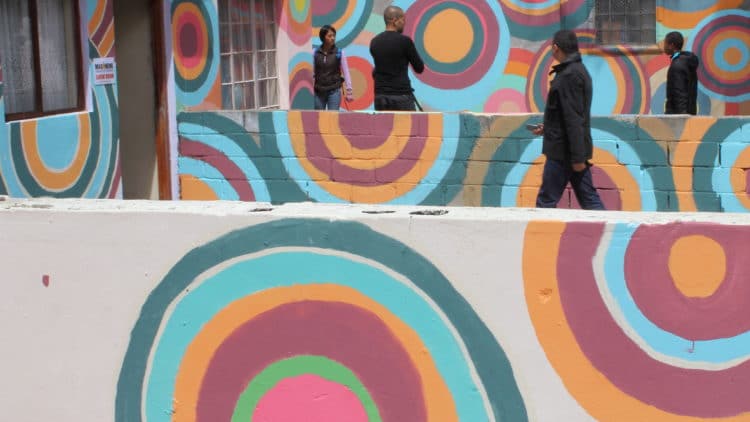
An experience in Alexandra and Langa Township, tour guides leading travellers and guests to gallery homes. Cape Town and Johannesburg
The Maboneng Township Arts Experience’s framework was developed primarily through the National Responsible Tourism Guidelines for South Africa. The framework focusses on responsible arts and tourism initiatives, evaluating and supporting sustainability, social and environmental responsibility, traceability as well as impact. The Maboneng Township Arts Experience works with communities to identify and develop authentic township based tourism experiences based on local assets and talents. Maboneng Township Arts Experience is a non-profit, social entrepreneurship, tourism organisation that trains and works together with families and artists to convert their homes into art galleries/museums. A perfect treat for the local and international tourism market.
The funds raised from tickets to visit our Gallery Homes, as well as product sales, go directly to support our training programmes and home gallery infrastructure. The organisation’s programmes contribute substantially towards training, women and youth empowerment, income generation, as well as the advancement of transformation in impoverished townships across South Africa. The ongoing programmes impact the cultural, social, economic and environmental conditions of all participants. They transform the township economy and improve quality of life for the long run. Our activities culminate in annual public arts festivals. This initiative by the Maboneng Township Arts Experience develops local creativity, fosters predominantly female employment and empowerment, promotes gender equality to reduce extreme poverty and increase the tourism revenue capacities of the regions in which it operates. A visit to the Maboneng Township Arts Experience’s Gallery Homes directly impacts 20 lives. Our non-profit programs do not only encourage art and creativity in townships, they also provide economic opportunities for the families opening their homes, as well as a platform for artists to showcase and sell their work.
Data Driven Neighbourhood Development
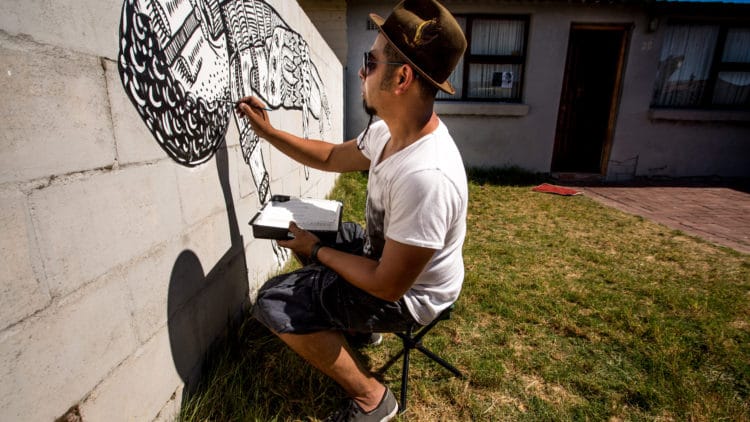
An experience in Alexandra and Langa Township, tour guides leading travellers and guests to gallery homes. Cape Town and Johannesburg
The framework allows for the monitoring and evaluation of the efficiency and effectiveness of projects and identify their real economic and social impact in the supply chain. As a result of data gathering, surveys and analysis, focus groups and interviews the Maboneng Township Arts Experience team captures data and success stories instigated by the production of the collections.
The Maboneng Township Arts Experience has directly inspired the creation of many other festivals and programs that impact more communities across South Africa:
- Newcastle Arts Experience
- Makhelwane Festival
- Gom Art
- Ghetto Art Gallery
- Cape Town International Dance Festival
- Backyard Theatre
- Kayamandi Creative District
- National Community Mediation Hubs
- Langa Township Art Gallery
- Home Innovation Labs
- OpenStreets Cape Town
This has resulted in 450 new job opportunities created, 40 new businesses and 15 new home galleries per year.
Conclusion
The negative perceptions and stereotypes attached to townships regarding poverty and crime persist, and the wave of tourism operations in South African townships has led to serious concerns about the voyeuristic, aloof manner in which the tours are conducted from busses. The lack of interaction on such occasions detracts from the hearty and welcoming communities who live in South African townships. The Maboneng Township Arts Experience encourages residents of Townships to take ownership of the township experience. Bearing in mind our emphasis on responsible tourism, communities are inspired to display their artworks and performances, making and selling food, ushering guests around, being curators for the various art exhibitions and providing accommodation for guests wanting to stay over. As residents of townships, they are the heartbeat of the township as well as the vehicle for visitors to have the most authentic experience with the communities. The residents are uniquely able to convey their own stories and in so doing, they can directly represent themselves. The tour routes run where some of the local artists reside. This reduces their movement of art pieces and ensures that they are displayed in the places that they are made. Visitors also get a sense of the artist’s living environment, contributing to authenticity of the tour and sense of pride for the artist.


